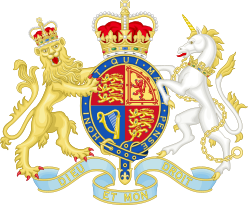 | |
| Presented | 3 April 1979 |
|---|---|
| Parliament | 47th |
| Party | Labour Party |
| Chancellor | Denis Healey |
‹ 1978 | |
The April 1979 United Kingdom budget was delivered by Denis Healey, the Chancellor of the Exchequer, to the House of Commons on 3 April 1979. [1] [2] It was the first of two budgets to be presented to Parliament in 1979, and the last to be presented by Healey and the Labour Government of James Callaghan. [3] It was also the last Labour budget to be presented until 1997. [4]
Described as a caretaker budget, it was introduced after Callaghan's government had lost a vote of no confidence the previous month, and was designed to facilitate the continued raising of taxes until an election could be held to choose a new government, which would then outline a new budget. Among the measures announced were an increase in all income tax personal allowances by 8.9%, which was in line with inflation at the time, the abolition of child tax allowance, and a rise in child benefit to £4.00 per week. [4] In his response to the budget, Shadow Chancellor Geoffrey Howe said Healey "will have left a dreadful inheritance for the next chancellor". [4]
The budget was supported by the Conservative Party led by Margaret Thatcher, which went on to win the 1979 general election a few weeks later. Howe, who had served as Shadow Chancellor since 1975, and became Chancellor in the first government of Margaret Thatcher, then delivered a new budget to Parliament on 12 June. [3]